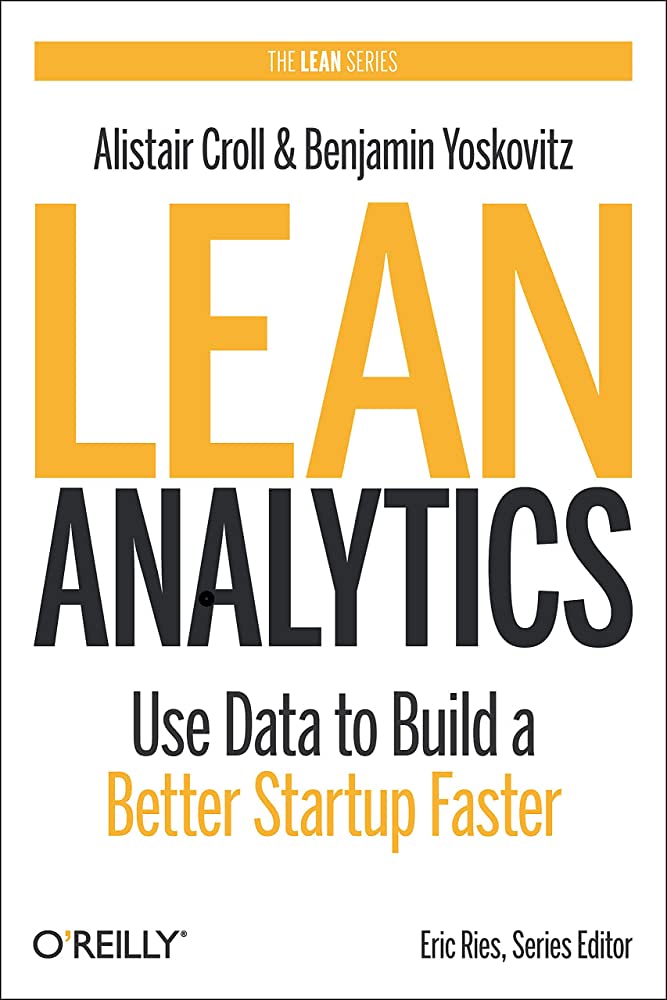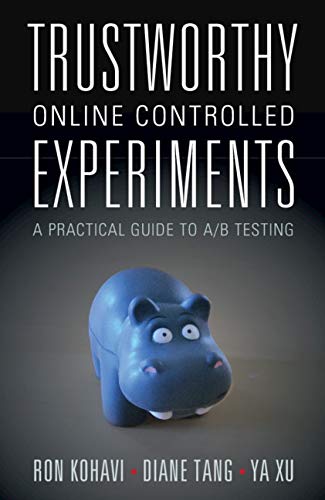Building Product Sense: 3 Helpful Books for Data Scientists
May 02, 2023
If you are working or want to work as a data scientist, you probably already know that having a strong product sense is crucial, particularly for product data scientists or data analytics roles. But what you may not know is how to develop that strong product sense without direct industry experience.
Luckily, it isn’t that hard to start developing your product sense. Books are an excellent resource! Reading is such a helpful way to gain product sense because it teaches you the language of speaking about products. You not only gain knowledge, but you also learn the language used to express that knowledge.
Of course, there are a lot of books to choose from, so, in this blog, I want to recommend three fantastic books that can help both beginners and experienced data scientists build product sense. These books can help you understand things like the importance of metrics, the role of product managers, how to use data to drive business growth, and more.
Now, let’s check out these great reads!
Lean Analytics

Lean Analytics by Alistair Croll and Benjamin Yoskovitz is actually targeted toward entrepreneurs, but I have found that it is a valuable read for data scientists as well. The three parts contain a wealth of information on how data can practically be used for the success of a business.
In Part 1, “The Lean Analytics Cycle,” you’ll learn about a framework for measuring and optimizing business operations. As a data scientist, this teaches you how to define metrics for measuring success, and since the book is aimed at entrepreneurs, it will also show you how to better communicate with stakeholders about how to use data to drive business growth.
Part 2, “Analytics for Every Business,” looks at how metrics and analytics work for different businesses in the context of the lean analytics approach to developing and scaling a business. It covers different business stages and types, including business models like e-commerce, software as a service, mobile-first businesses, and two-sided marketplaces.
This section is especially great for data scientists because it examines how to measure particular metrics like customer acquisition and revenue and how to use those analytics to optimize a product.
The book wouldn’t be complete without practical examples of how all that works, and that is what Part 3, “Case Studies,” is all about. It discusses businesses that have successfully used analytics to grow and scale their operations, which can give you some great ideas about how to apply the ideas from the book in real-world situations.
What makes Lean Analytics such a great read for data scientists is that it really highlights how data can contribute to the growth of the business. Understanding this can help give you a stronger sense of how your technical skills can speak to and impact the product.
Cracking the Product Manager Interview

Another book that is not aimed directly at data scientists but which I believe to be incredibly helpful is Cracking the Product Manager Interview by Gayle Laakmann McDowell and Jackie Bavaro.
As you can probably tell from the title, this book provides guidance and strategies for landing a job as a product manager. But, how is that helpful for data scientists?
As a data scientist, you will often work closely with product managers since product managers are the ones typically making decisions about where a product is going and how it can be improved. Understanding product management can make it easier to communicate with product managers and help them make informed decisions.
Knowledge of product management can also prove quite beneficial for interviews because product managers commonly interview data scientists. The product manager wants to ensure that data scientists understand their product and its goals. The more you know about product management the easier it will be to connect with and impress a product manager in an interview.
Turning to the book itself, Cracking the Product Manager Interview also has 3 parts: “Getting Ready,” “The Interview,” and “Beyond the Interview”. I found that the second part was the most helpful (although I highly recommend the entire book) because it had a lot of great strategies for the interview process. The authors even provide analytical and metric frameworks to answer some case questions.
Overall, Cracking the Product Manager Interview is an excellent resource that can help you work more effectively with product managers and understand products better. If you want to build your product sense, I giving it a read.
Trustworthy Online Controlled Experiments

If the first 2 books are all about gaining a solid understanding of products, my final recommendation is all about mastering the practical skills needed to perform a crucial part of the data scientist’s job: A/B testing.
Trustworthy Online Controlled Experiments by Ron Kohavi, Diane Tang, and Ya Xu is a highly technical but incredibly valuable resource for any data scientist. It was written by industry experts and covers both fundamental A/B testing knowledge and the practical skills you need to actually run a test.
This book can be hard to understand because it is quite technical, but the value it offers is absolutely worth requiring a few reads. Just some of the things you will learn with this book include:
- How A/B testing works under the hood
- Best practices in the industry
- Solutions to real problems data scientists face
These are things that can be beneficial for both those new to the field and experienced data scientists. There are also things that are hard to learn in school, which is why I so highly recommend this book.
So, what precisely is the book all about?
Trustworthy Online Controlled Experiments acts as a comprehensive guide to performing A/B tests reliably and ethically. Just like our other books, it contains 3 parts.
In part one, “Foundations,” you’ll learn the fundamentals of A/B testing (also called online experimentation). This includes not only why they exist and how they work but also what ethical considerations must be considered when conducting them.
The book then moves on to “Practice,” which acts as a practical guide to actually running online experiments. It covers the different stages like experiment design and data analysis and also discusses common challenges and pitfalls like multiple testing and sample size determination.
If that’s not enough, Part 3 expands things with “Advanced Topics.” This includes things like personalization and machine learning as well as case studies and real-world examples.
The book is packed with information, but it is also easy to navigate. It targets multiple audiences, from data scientists to product managers and engineers, and the authors have indicated which chapters are relevant to which role. You can find what you need without thumbing through the entire book. The chapters aimed at data scientists can teach you a lot about what you need to know for your day-to-day job.
Trustworthy Online Controlled Experiments is thus a must-have for anyone involved in A/B testing. It’s a book I have returned to again and again as a valuable resource for building the knowledge and skills required for A/B testing.
Conclusion
If you’re looking to build your product sense, I hope you will give these 3 books a try. Lean analytics, product management, and A/B testing are all useful topics for a data scientist that can help you understand how to connect your technical skills with product insights.
Remember though that building product sense takes time and effort. These books can get you started and help you on your journey, but there are many things to learn. Keep reading and keep learning, and you’ll soon be a valuable asset to any company and team.

